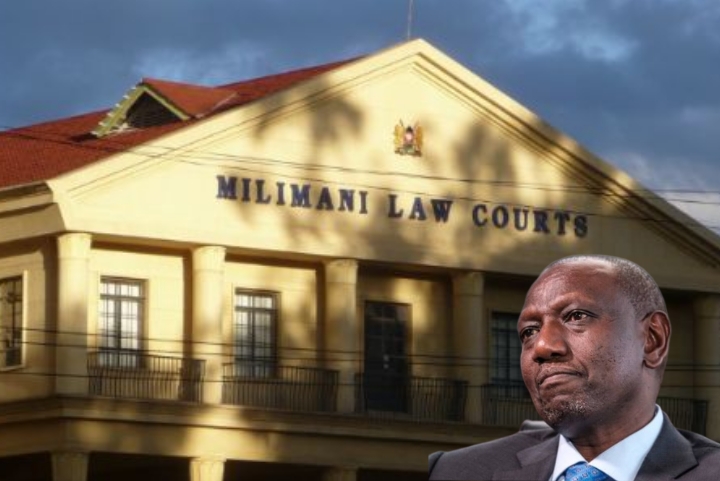HIGH COURT SUSPENDS NEW UNIVERSITY FUNDING MODEL
The High Court has temporarily suspended the implementation of the recently introduced new higher education, university, funding model
The ruling, issued by Justice Chacha Mwita follows a lawsuit filed by the Kenya Human Rights Commission (KHRC) in 2023. Justice Chacha, directed govt to halt the implementation until the Case is heard.
The university funding model, categorizes students into five financial bands with student's ranked to be more needy classified in Band 1 and receiving the lion's share of government Scholarship and HELB Loans while Band 5 receive the least and pay more in household fees.
Critics claim the model is ineffective and raises concerns about its ability to address current challenges in the education system.
KHRC, along with the Elimu Bora Working Group, Boaz Waruku, and the Students Caucus, had filed the lawsuit on October 13, 2023, arguing that the funding model would exclude thousands of students from receiving financial aid.
The judge highlighted that the case had been delayed because the Attorney General, Education Cabinet Secretary, and the Kenya Universities and Colleges Central Placement Service (KUCCPS) failed to respond promptly.
The case is set to be heard on December 16, 2024, with the parties expected to present their arguments.
50,000 university students unable to pay Fees under the new funding model.
University Students in Kenya are struggling to pay their Tuition Fees following the Introduction of the New Funding Model.
Reports indicate 50,000 university students across the country are on the blink of dropping out of Higher Learning institutions, with other's unable to enroll over the Household Fees required.
The new Higher Education Funding Model (HEF) was recently introduced by the Ministry of Education, as part of an effort to streamline financial support for students.
The Model, was Aimed at creating a more equitable distribution of funds, the model was designed to reduce bureaucratic hurdles and ensure that financial aid reaches those who need it most.
However, its rollout has been met with significant criticism, as many students are finding themselves either ineligible for financial aid or experiencing delays in the disbursement of funds.
HELB, Higher Education Loans Board, has been issuing Kenyan University students upkeep loans, based on how needy their families are, according to the New University Funding Model.
Students joining Public Universities from the 2023 KCSE Cohort and Categorized as the Most Needy, depending on their families income, will receive HELB upkeep loans amounts of UpTo Ksh 60,000 per Academic year.
Higher Education Principal Secretary Beatrice Inyangala revealed that the new funding model is grouped into five bands depending on the family's income level.
At the same time, the PS outlined the breakdown of the amount each band will receive as a scholarship and loan.
The band any student belongs to depends on the amount the applicant placed as family income while applying for a scholarship.
Band One, the most needy group, consists of a family whose income is not beyond Sh5,995.
Under this category, the government scholarship will cover 70 per cent of the fees while the loan will cover 25 per cent, making the total support 95 per cent.
The family will pay 5 per cent of the fees and the student will receive an upkeep loan from Helb of Sh60,000.
In Band Two, the government has grouped families whose income does not surpass Sh23,670 but is above Sh5,995.
In this category, the government scholarship will cover 60 per cent while the loan will cover 30 per cent.
The family will pay 10 per cent of the fees. Under this category, the student will receive an upkeep loan of Sh55,000.
In Band Three, the government has classified families whose family income does not pass Sh70,000 but it is above Sh23,670.
In this category, the government scholarship will cover 50 per cent, while the loan will cover 30 per cent.
The family will contribute 20 per cent of the fees supposed to be paid. Students in the category will receive an upkeep loan of Sh50,000.
In Band Four, the government has grouped families whose income does not exceed Sh120,000 but is above Sh70,000.
In this group, the government scholarship will cover 40 per cent while the loan will cover 30 per cent.
The family will pay 30 per cent of the fees.
In Band 5, the government has grouped families which earn more than Sh120,000.
In this category, government scholarship will pay 30 per cent of fees.
They will receive 30 per cent of the fees as a loan while their families will be required to pay 40 per cent of the fees.
The inability to pay tuition fees has Consequently, the financial strain has forced some students to consider dropping out of their programs, effectively jeopardizing their long-term career prospects.
University Students from low-income backgrounds are particularly affected, as they often rely heavily on financial assistance to pursue higher education.
With the rising cost of living and tuition fees, these students are caught in a precarious situation, unable to continue their studies without immediate financial support.







